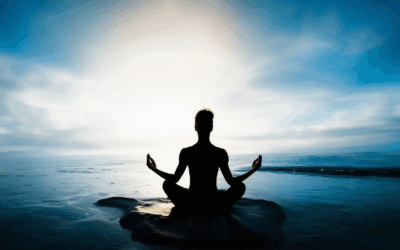In today’s fast-paced world, achieving mental clarity has become more crucial than ever. With constant demands and stressors pulling us in different directions, many individuals struggle to maintain equilibrium. However, there exists a powerful tool that can help unlock mental clarity and foster a sense of balance—self-reflection. This ancient practice, often overlooked in our hurried lives, offers profound insights into our thoughts, emotions, and behaviors, enabling us to navigate life’s challenges with greater ease and confidence.
Key Takeaways
- Enhance Mental Clarity and Balance: Utilize self-reflection practices to gain insights into your thoughts and emotions, fostering a more balanced and focused life.
- Identify Patterns and Needs: Regular reflection helps uncover recurring behaviors and understand your true needs, enabling better decision-making.
- Journaling for Insight: Keep a journal to track your thoughts and emotions, providing a record of your personal growth over time.
- Practice Gratitude Daily: Reflect on positive aspects of life to boost positivity and improve overall well-being.
- Weekly Check-Ins for Adjustment: Review progress and adjust strategies weekly to stay aligned with your goals and adapt to challenges.
- Seek Support and Community: Engage with support groups or professionals to gain encouragement and guidance in your self-reflection journey.
- Continuous Growth Through Reflection: Make reflection a habit to foster ongoing personal development and authenticity.

What is the Best Thing for Mental Clarity?
Mental clarity is essential for overall well-being, allowing us to think critically, make decisions, and enjoy life. Achieving it requires a combination of mindset, habits, and environment. Here are proven strategies to enhance mental clarity:
- Prioritize Sleep : Quality sleep is crucial for cognitive function. Aim for 7-9 hours per night to support memory, focus, and emotional stability.
- Hydrate Regularly : Dehydration can cloud thinking. Drink plenty of water throughout the day to stay sharp and refreshed.
- Balanced Nutrition : A diet rich in fruits, vegetables, lean proteins, and whole grains fuels the brain. Avoid excessive sugar and processed foods that cause energy crashes.
- Regular Exercise : Physical activity increases blood flow to the brain, boosting concentration and creativity.
- Practice Mindfulness : Techniques like meditation, deep breathing, or yoga reduce stress and improve focus.
- Limit Screen Time : Blue light exposure before bedtime can disrupt sleep. Unplug devices at least an hour before sleeping.
- Create a Clean Environment : A tidy space reduces distractions and promotes a calm mindset.
- Set Clear Goals : Having purposeful objectives helps channel attention and boost productivity.
- Stay Curious : Engaging in new activities stimulates the brain, keeping it active and sharp.
- Seek Support Networks : Connecting with others who share similar interests fosters a sense of belonging and reduces loneliness.
- Manage Stress Effectively : Chronic stress impairs cognitive function. Practice relaxation techniques like journaling or spending time in nature.
- Stay Hydrated with Vitamin D : Low levels of vitamin D have been linked to mood disorders. Ensure adequate vitamin D intake through diet or supplements.
For further exploration of these strategies, visit our mindfulness guide and learn how to cultivate mental clarity through daily practices. Additionally, discover nutritional tips to fuel your brain for optimal performance.
Does Self-Reflection Improve Mental Health?
Yes, self-reflection significantly enhances mental health by fostering various psychological benefits. Here’s how it contributes:
Emotional Awareness and Regulation
Engaging in self-reflection helps individuals recognize and understand their emotions. By reflecting on feelings, thoughts, and experiences, people gain insight into their emotional states, enabling better regulation and management of emotions. This process reduces emotional reactivity and promotes a calmer, more balanced mindset.
Stress Reduction and Emotional Well-Being
Reflecting on stressful situations allows individuals to identify triggers and develop coping strategies. This practice fosters resilience and emotional stability, reducing the impact of stress and anxiety. By examining negative thought patterns, people can challenge irrational beliefs and replace them with healthier, more constructive ones.
Improved Decision-Making and Problem-Solving
Self-reflection encourages introspection, which enhances critical thinking and problem-solving abilities. By considering past decisions and outcomes, individuals can identify mistakes and develop strategies to avoid repeating them. This introspective approach leads to more informed choices and effective solutions to challenges.
Increased Empathy and Social Connections
Reflecting on interactions with others deepens understanding and empathy. This self-awareness improves relationships by helping individuals recognize others’ perspectives and needs. Consequently, social connections strengthen, reducing feelings of isolation and loneliness.
Enhanced Self-Esteem and Confidence
Examining personal achievements and growth during self-reflection boosts self-esteem and confidence. Recognizing progress and learning from past experiences motivates individuals to set and achieve goals, further promoting mental well-being.
Guidance for Personal Growth
Self-reflection serves as a powerful tool for personal development. It helps individuals clarify values, goals, and priorities, guiding them toward aligning their lives with what truly matters. This alignment often leads to greater life satisfaction and a sense of purpose.
Practical Steps for Incorporating Self-Reflection
To maximize the benefits of self-reflection, consider these steps:
- Set aside dedicated time daily for reflection.
- Journal thoughts, feelings, and experiences to track progress.
- Practice mindfulness during reflections to stay present.
- Seek guidance from professionals if needed to deepen understanding.
By incorporating self-reflection into your routine, you unlock a powerful tool for mental health improvement. Explore resources from Live On Blogs to learn more about mindfulness techniques and personal growth strategies. [1]
(Note: The information provided is general and should not replace professional advice. Always consult a qualified mental health professional for personalized support.)
[1] Live On Blogs – Mindfulness Resources

“`html
Examples of Self-Reflection
- Reflecting on personal achievements and growth opportunities.
- Journaling about daily experiences and emotions.
- Evaluating past decisions and their outcomes.
- Identifying personal strengths and areas for improvement.
- Setting personal goals and tracking progress.
- Learning from failures and setbacks.
- Practicing gratitude and acknowledging positive moments.
- Exploring career choices and professional development.
These reflections often involve introspection and critical thinking to gain deeper understanding of oneself and one’s life circumstances.
“`

Reflecting on Your Mental Health: A Comprehensive Guide
Reflecting on your mental health is a vital practice that allows you to gain insight into your emotions, thoughts, and overall well-being. This process can help you identify patterns, understand your needs, and take proactive steps toward improvement. Below are effective strategies to help you reflect on your mental health effectively.
Daily Reflection
Start by incorporating daily reflection into your routine. This practice involves taking a few moments each day to pause and assess your mental state. Consider the following approaches:
- Journaling: Write down your thoughts and feelings. Journaling helps you process emotions and track changes over time. It can also serve as a record of your journey, which can be revisited for insights.
- Mindfulness Practice: Spend a moment focusing on your breath or observing your surroundings. This can ground you in the present and provide clarity on your mental state.
- Gratitude List: Reflect on things you’re grateful for, no matter how small. This practice fosters positivity and can improve your overall outlook on life.
Weekly Check-In
While daily reflection is beneficial, a weekly check-in offers a broader perspective. Set aside time once a week to review your progress and adjust your approach as needed. Here’s how you can do it:
- Assess Progress: Look back at your goals and see what you’ve accomplished. Identify areas where you’ve made progress and areas that may need adjustment.
- Evaluate Challenges: Reflect on obstacles you’ve faced and how you’ve navigated them. Understanding challenges can help you develop coping strategies for future difficulties.
- Plan Ahead: Use this time to set new goals or adjust your strategy based on what you’ve learned. This ensures that your efforts remain aligned with your objectives.
Seeking Support and Community
Reflection isn’t a solitary journey. Engaging with others who share similar experiences can provide valuable support and guidance. Consider these steps:
- Join Support Groups: Participate in online forums or local support groups where you can connect with others who are also reflecting on their mental health. This can offer comfort and a sense of belonging.
- Share Your Journey: Open up to trusted friends, family, or professionals who can offer constructive feedback and encouragement. Sharing your story can be therapeutic and helpful.
- Professional Guidance: If your reflections reveal underlying issues, consider reaching out to a mental health professional. They can provide personalized advice and support tailored to your needs.
Why Reflection Matters
Reflection on your mental health is not just about looking inward—it’s about growth and improvement. By regularly examining your thoughts, emotions, and experiences, you can better understand yourself and your needs. This awareness can empower you to make positive changes and lead a more balanced, fulfilling life.
Actionable Steps for Continuous Improvement
To make reflection a sustainable habit, integrate the following practices into your routine:
- Set Specific Times: Choose dedicated times for reflection, whether it’s in the morning, evening, or during the workday. Consistency is key to building this as a habit.
- Use Tools and Resources: Leverage tools like apps, journals, or guided reflection exercises to facilitate your practice. These resources can provide structure and support.
- Be Patient and Kind to Yourself: Reflection is a process, and it’s okay to have setbacks or moments where you feel stuck. Embrace these moments as opportunities for growth.
By implementing these strategies, you can cultivate a meaningful reflection practice that enriches your mental health and supports your personal growth. Remember, the journey to self-awareness is a continuous one, and every step forward counts.
How to Properly Self-Reflect
Self-reflection is a powerful tool for personal growth and understanding yourself better. Here’s a step-by-step guide to help you master the art of self-reflection:
- Set Clear Intentions – Begin by defining what you want to reflect on. Whether it’s your daily actions, decisions, or overall life choices, having a clear focus helps you stay on track.
- Observe Your Emotions – Pay attention to how you feel during various situations. Understanding your emotional responses can provide insights into your motivations and behaviors.
- Reflect on Experiences – Take time to think about recent events or interactions. Consider what went well and what could have been improved, acting as your own coach to identify areas for growth.
- Learn from Mistakes – Self-reflection often reveals mistakes. Analyze what went wrong, why it happened, and how you can avoid similar errors in the future.
- Practice Gratitude – Reflect on the positive aspects of your life and recognize the progress you’ve made. This fosters a more positive mindset and encourages continued growth.
- Seek Feedback – Sometimes others see things you might miss. Share your thoughts with trusted friends, family, or mentors to gain fresh perspectives and insights.
- Journal Your Thoughts – Writing down your reflections can make the process easier and allow you to track your progress over time. It’s a valuable tool for introspection and accountability.
- Focus on Continuous Growth – Self-reflection shouldn’t be a one-time activity. Make it a habit to regularly assess your life and adjust your goals accordingly.
By incorporating these practices into your routine, you’ll develop a deeper sense of self-awareness and unlock your potential for personal growth. Visit our how-to-guides section for more resources on mindfulness and self-improvement.

What is an example of self-introspection?
Self-introspection is the practice of examining one’s own thoughts, feelings, beliefs, and actions to understand oneself better. It involves reflecting on your life, decisions, and personal growth to gain insight into your values, strengths, and areas for improvement.
An example of self-introspection could be:
- Reflecting on Life Choices : Suppose you’re considering a career change. You might sit down and ask yourself, “Why did I choose my current career? What aspects of it bring me fulfillment, and which parts feel unsatisfying?” This kind of self-reflection allows you to evaluate your motivations and explore alternative paths.
- Journaling About Gratitude : Many people practice self-introspection by writing in a journal daily. They might start by listing things they’re grateful for, such as relationships, achievements, or small joys in their day. This habit fosters awareness of positive aspects of life while also encouraging critical thinking about what truly matters to them.
- Analyzing Past Decisions : Self-introspection often involves looking back at past decisions and asking, “What led me to make that choice? Was it informed by my values, fears, or external pressures?” This exercise can reveal patterns in decision-making and help you understand yourself better.
- Exploring Strengths and Weaknesses : Another form of self-introspection is identifying your strengths and weaknesses. By doing so, you can work on improving areas that hold you back and leverage your strengths to overcome challenges.
- Contemplating Values : Self-introspection can also involve clarifying your core values. Ask yourself, “What truly matters to me in life?” This question can guide your decisions and help you align your actions with your beliefs.
By regularly engaging in self-introspection, you can develop greater self-awareness, leading to more intentional and authentic living.
Conclusion
Engaging in self-introspection is a powerful tool for personal growth and self-discovery. It allows you to examine your life, decisions, and inner world, helping you understand yourself better and make more meaningful choices.




0 Comments